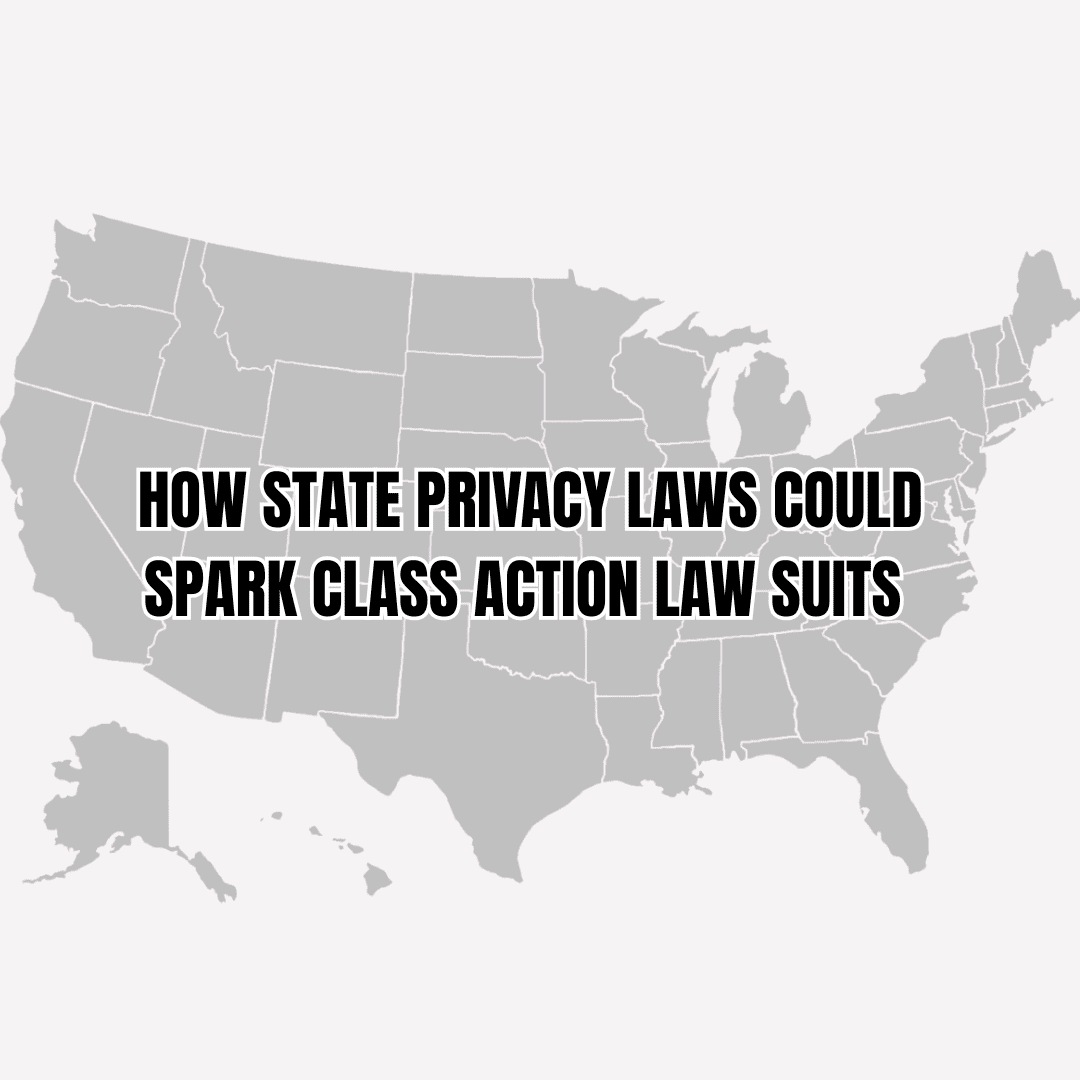Could the Patchwork of State Data Privacy Laws Lead to Class Action Lawsuits?
Data privacy in the U.S. is evolving rapidly — and marketers, business leaders, and legal teams are all feeling the pressure. With 11 state laws already in effect and five more set to come online by January 2026, compliance is anything but straightforward.
So, here’s the big question: Could these state-level laws open the door to class action lawsuits?
The answer is: Absolutely — and it’s a risk that’s growing. Here’s why.
The Compliance Challenge: 16 (and Counting) Sets of Rules
States like California, Virginia, Colorado, and New Jersey have already implemented comprehensive data privacy laws. Each one empowers consumers with rights like:
- Opting out of the sale of personal information (PI)
- Accessing, correcting, or deleting their PI
- Limiting the use of sensitive or children’s data
- Requiring explicit consent for certain types of data processing
While these laws share similarities, they also differ significantly in scope, definitions, and enforcement mechanisms. For example:
- Virginia now bans collecting reproductive or sexual health data without consent.
- California requires businesses to minimize data collection and limit processing to necessary purposes.
- New Jersey mandates robust data protection assessments and written contracts with service providers.
The result? A complex compliance landscape — one that leaves plenty of room for potential violations.
Where Class Actions Could Come In
Class action lawsuits thrive in situations where:
- There’s a clearly defined group of affected individuals
- The harm is similar across the group
- A company’s actions (or inactions) violate the same set of rules
With state data privacy laws, these criteria can absolutely be met — especially when companies fail to:
- Honor opt-out requests
- Provide clear privacy notices
- Secure sensitive personal data
- Get the required consent for targeted advertising or selling data
For example, if a company fails to comply with New Jersey’s requirement to obtain consent before processing a teenager’s data for targeted advertising, every teenager affected could be part of a class action.
What Should Businesses Do?
Know Your Jurisdictions
If you operate nationally, assume that you must comply with all state privacy laws that apply to your customers — even if your main office is in just one state.
Audit Your Data Practices
- Are you collecting more data than necessary?
- Do you have proper consent mechanisms in place?
- Are your privacy notices clear, comprehensive, and updated?
Prepare for Enforcement
State attorneys general (AGs) are stepping up enforcement — and class action lawsuits often follow. Ignoring opt-outs or mishandling sensitive data isn’t just a regulatory risk — it’s a potential litigation risk.
Get Legal Guidance
Each state law has nuances. A misstep in Virginia might differ from a misstep in Colorado or New Jersey. Work with experienced counsel to ensure your compliance program meets each state’s requirements.
The Bottom Line
The state-by-state approach to data privacy creates a patchwork of obligations — and opportunities for class action lawsuits. As more states roll out new laws (Tennessee, Nebraska, Maryland, Indiana, and Kentucky, for example), the risk only grows.
The time to act is now. Don’t wait until a class action is filed — build a robust privacy program today that’s prepared for the complexities of tomorrow.






